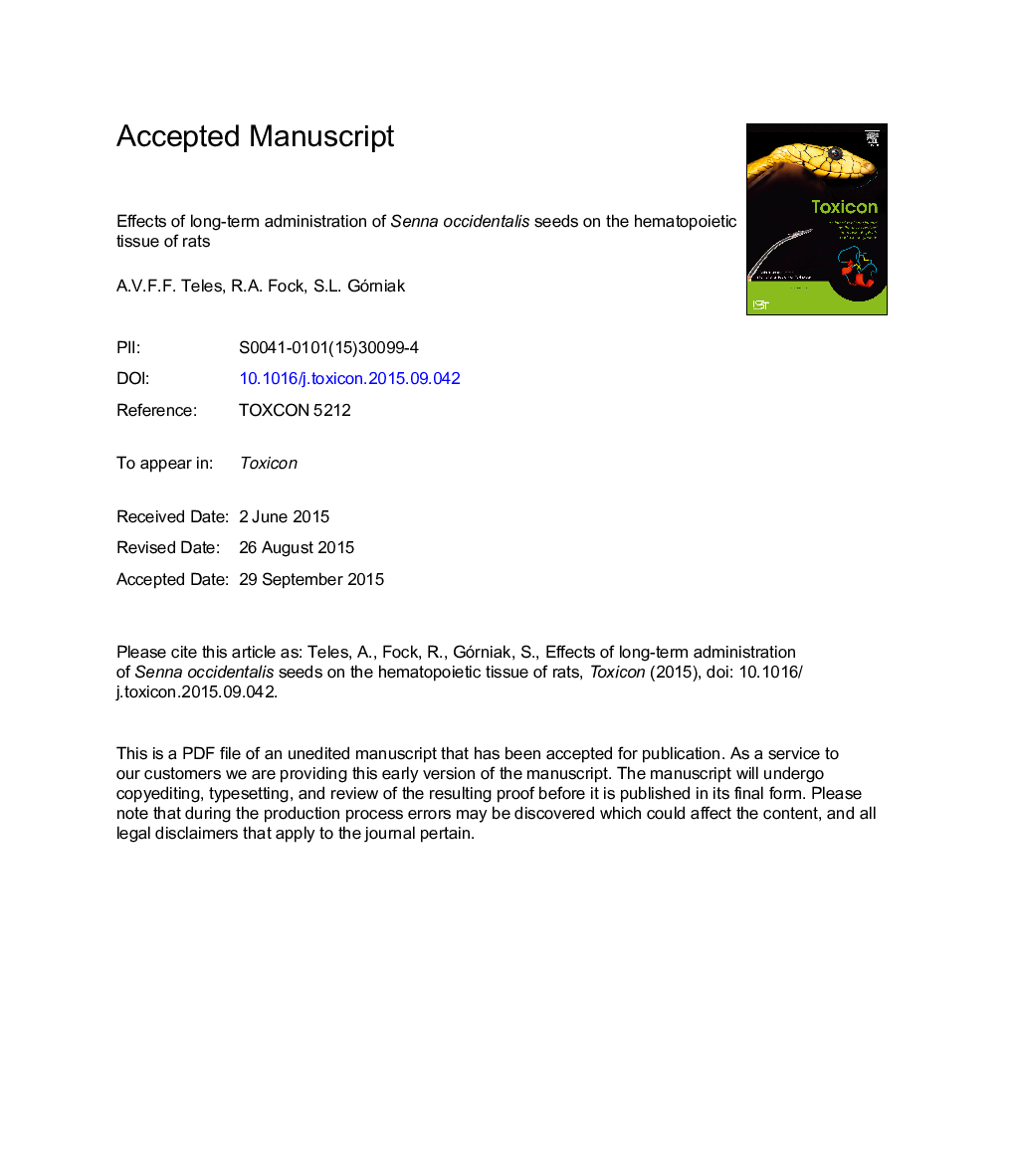| Article ID | Journal | Published Year | Pages | File Type |
|---|---|---|---|---|
| 8395147 | Toxicon | 2015 | 27 Pages |
Abstract
Senna occidentalis (S. occidentalis) is a toxic leguminous plant that contaminates crops and has been shown to be toxic to several animal species. All parts of the plant are toxic, but most of the plant's toxicity is due to its seeds. Despite its toxicity, S. occidentalis is widely used for therapeutic purposes in humans. The aim of the present work was to investigate, for the first time, the effects of the chronic administration of S. occidentalis seeds on hematopoietic organs, including the bone marrow and spleen. Fifty male Wistar rats were divided into five groups of 10 animals. Rats were treated with diets containing 0% (control), 0.5% (So0.5), 1% (So1), or 2% (So2) S. occidentalis seeds for a period of 90 days. Food and water were provided ad libitum, except to pair-fed (PF) group which received the same amount of ration to those of So2 group, however free of S. occidentalis seeds. It was verified that rats treated with 2% S. occidentalis seeds presented changes in hematological parameters. The blood evaluation also showed a significant decrease of the Myeloid/Erythroid (M/E) ratio. Chronic treatment with S. occidentalis promoted a reduction in the cellularity of both the bone marrow and spleen. Additionally, we observed changes in bone marrow smears, iron stores and spleen hemosiderin accumulation. Histological analyses of bone marrow revealed erythroid hyperplasia which was consistent with the increased reticulocyte count. These findings suggest that the long-term administration of S. occidentalis seeds can promote blood toxicity.
Keywords
Related Topics
Life Sciences
Biochemistry, Genetics and Molecular Biology
Biochemistry, Genetics and Molecular Biology (General)
Authors
A.V.F.F. Teles, R.A. Fock, S.L. Górniak,
